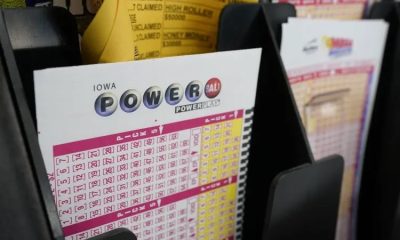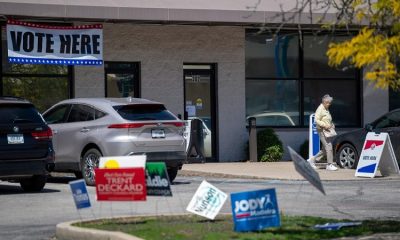Local News
Bloomington vape, smoke stores see spike of fake ID usage after buying age rises

Bloomington smoke and vape stores are seeing an increase in underage customers trying to buy tobacco products with fake IDs since a new federal law pushed the legal buying age to 21 in December.
Bloomington Smoke Time manager Brayton Phillips said he estimated around a 70% increase in people attempting to use fake IDs. Many of the IDs he turns away are real but do not belong to the person trying to use it.
“With the age increase, people want it even more,” Phillips said. “It’s almost an incentive.”
Phillips said there was actually an increase in revenue within his store since the law was enacted. He said items like rolling papers and hemp wraps are still able to be bought by 18-year-olds, so more people are buying them.
He said he tries to not sell to people who are buying products for other underaged people, which is most obvious to him when he sees people outside waiting or the customer is on the phone.
Sam Salaymeh, the president of AMV Holdings, one of the country’s largest vape retailers with vape stores across multiple states, operates two MAXX Electronic Cigarettes stores in Bloomington.
“We anticipate a lot of fakes,” Salaymeh said about the upcoming month. He said the company has dealt with fake IDs in the past but it was not a large issue.
Salaymeh has an automated computer ID verification system in place in all his stores across the country. He said his stores needed to update their software nationally to reflect the new change but were not given much time to do so because of how quickly the bill was passed.
Of AMV’s national revenue, 4.7% was from 18- to 20-year-olds. Salaymeh said he expects at least 0.5% of that revenue to continue to come from people buying products through older people. Salaymeh said one issue is that people are buying tobacco products to sell to younger people for their profit.
“We tend to ask when someone walks in with a large purchase,” Salaymeh said. “It’s surprising how many people actually just admit it.”
Salaymeh said his company tries to identify and stop those purchases by spreading descriptions across store locations about customers who try to buy for others, questioning people who make large purchases and reporting to law enforcement if necessary.
Village Pantry sales representative Amber Ingle said she checks IDs by examining the birth date, photo, barcode and whether it scans. Ingle said she also encounters people using others’ IDs.
-

 Local News2 weeks ago
Local News2 weeks ago$50,000 Truck stop sells Powerball tickets that are about to expire
-

 Indiana2 weeks ago
Indiana2 weeks agoAnderson man sentenced to 65 years for wife murder
-

 Local News2 weeks ago
Local News2 weeks agoBehold the spectacle that is Good Gravy!
-

 Indiana2 weeks ago
Indiana2 weeks agoWoman from Aurora detained for assaulting a child
-

 Local News2 weeks ago
Local News2 weeks ago$75 million “luxury urban” townhomes and condos with rooftop terraces are set to begin construction
-

 Local News2 weeks ago
Local News2 weeks agoIndiana Health Department is sued by an anti-abortion group seeking access to abortion records
-

 Local News1 week ago
Local News1 week ago$50,000 Powerball Double Play ticket sold in Indiana
-

 Local News1 week ago
Local News1 week agoVoters choose Democrats Munson, Deckard, Henry in county council primary





Leave a Reply